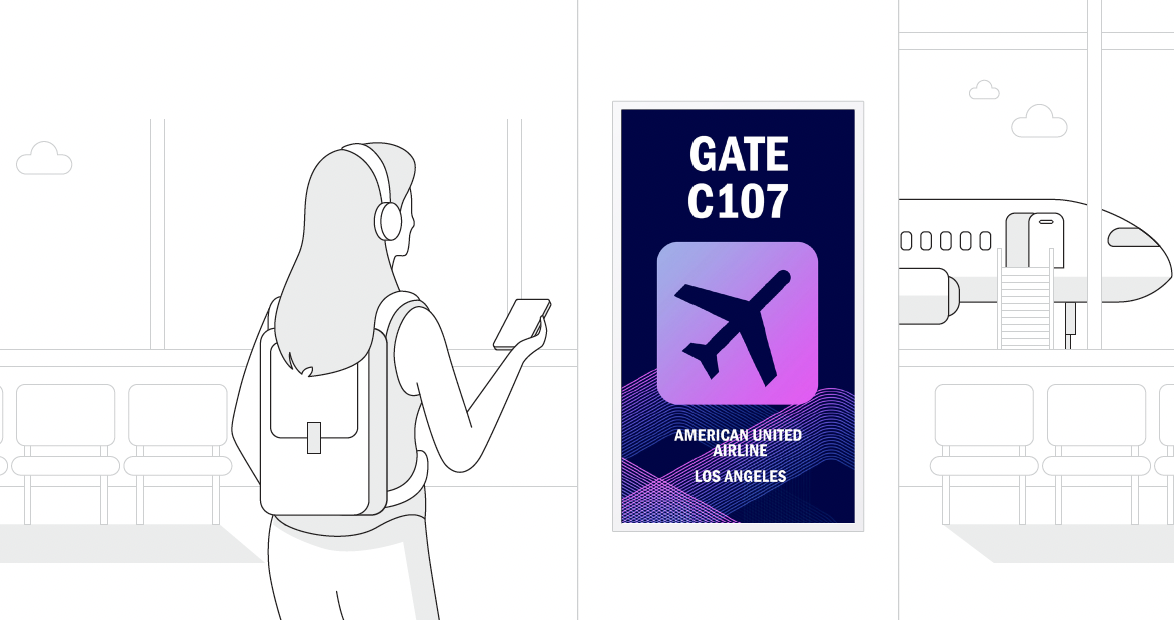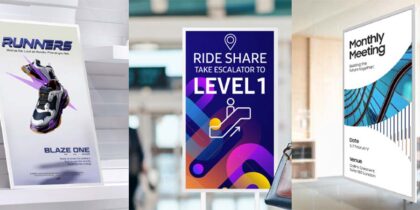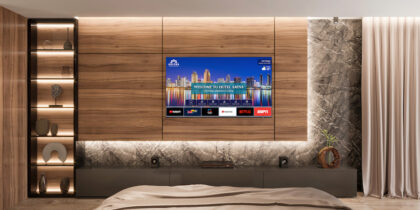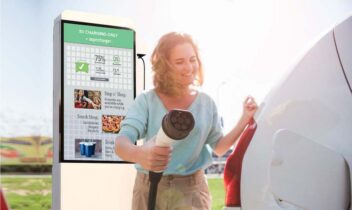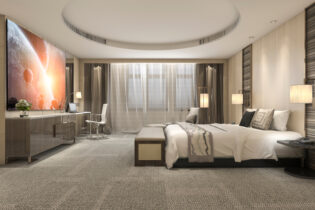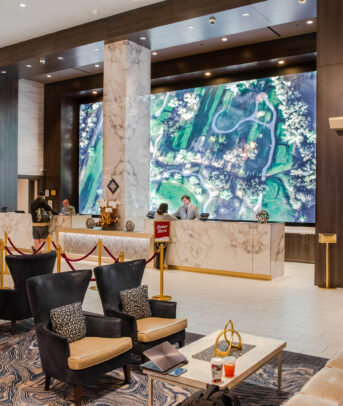Mobile technology is changing the look and function of the hotel front desk. The current model is impersonal and often time-consuming. Customers become frustrated when waiting to get to their rooms, and having a desk between hotel employees and guests creates a barrier right from the start.
It’s predicted that due to the use of new technology in hospitality, the front desk model will evolve into a more efficient one that uses tablets or other mobile technology and connects the hotel with the customer from the first interaction, without a barrier. This will likely change the look and feel of the majority of hotel lobbies and enhance the guest/hotel relationship.
Numerous Hotels Adopting Tablet Check-In
It’s currently expected that a significant number of hotels will begin using tablets for check-in during the next year. According to Hospitality Technology’s 2015 “Customer Engagement Technology Study,” 15 percent of hotels are currently using tablets for check-in, but 47 percent plan to begin using this technology within the next year. This means that hotels that don’t use check-in tablets will soon be in the minority and may begin to lag behind competitors in customer satisfaction. In fact, 71 percent of hotels report that their motivation in using mobile technology is to enhance the “customer experience and satisfaction.”
Self-Service and Staffed Devices
One of the concerns about mobile technology trends, especially regarding self check-in, is the lack of personalization and human touch in the process. The 2014 Forbes article, “Five-Star Hotels Revolutionize Luxury Check-In” observes that an app-based, self-service model can feel transactional. The article instead describes how Andaz, Auberge Resorts and Four Seasons Hotels and Resorts all got rid of their front desks and now meet customers in the lobby to check them in using a tablet.
Sara Kearney, vice president of international operations for all Hyatt brands, including Andaz, reported that employees had noticed a difference in guests’ behavior with this change because it created a peer-to-peer relationship. Instead of a front desk, the Andaz Maui has welcoming furniture and a sandpit so that guests can get their toes in the sand right away. Hotels can also personalize the environment through digital signage that displays interactive content personalized for the guest currently checking in.
Since some guests, especially business travelers, may want more of a transactional experience, they can be directed to a self-service station with a tablet. However, each guest should be greeted by an employee first. Because the interaction is more casual and feels more personal, the guest is more likely to share information with the employee that will help the hotel staff recommend additional services. Since the guest no longer feels the pressure of having a long line of people waiting behind them, they’re more likely to make dining reservations, purchase a spa package or ask about golf tee times.
Yes, it is different, and it changes the model of hotel service. But once employees move from behind the front desk to directly in front of guests, hotels will see the benefits of the personal connections formed by being side by side.


